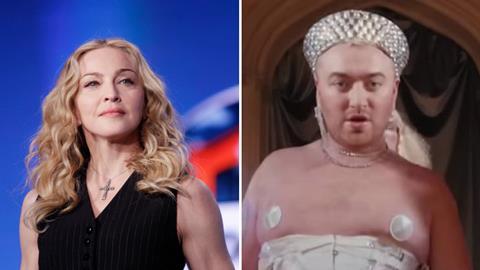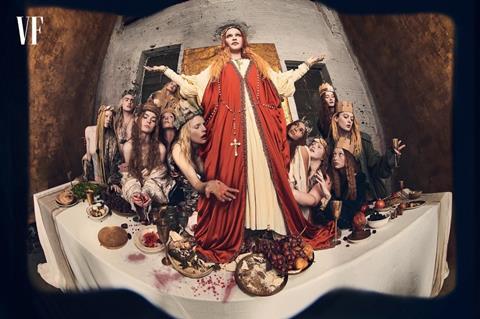The cross provokes big emotions of every kind, so we shouldn’t be surprised when celebrities despise and desecrate it. But free speech is a two-way street, says Tony Wilson

I was chatting with a friend when the conversation turned to some of the imagery in popular culture. She was outraged that Madonna should feature on the cover of Vanity Fair in a mockery of the Blessed Virgin Mary and that Demi Lovato’s recent album cover uses the cross irreverently. This is before you get to the explicit content in Sam Smith’s much-discussed new music video.
She pointed out that bringing up her children within a Christian household is tough enough without these negative messages all over the place. “They don’t dare disrespect Islam” she added.
I can relate to the outrage. I wince inwardly when people at work casually use the name of Jesus as an expletive. It does hurt to stand by when someone who loves you and whom you love is mocked.

Free speech?
Being maligned, misrepresented, mocked and humiliated is hardly new to Christianity. It is at the centre of the events leading up to the cross. The only defence Jesus offered was to state the truth about who he is. The prophecy of the suffering servant in Isaiah 53 is fulfilled as Jesus accepts humiliation without retaliation. If he refused to defend himself at the time I’m pretty sure he doesn’t want us to start now. Patiently bearing insults is part of our call to share in his suffering.
Words attributed (probably wrongly) to Voltaire go along the lines, “I wholly disapprove of what you say but I will defend to the death your right to say it.” How much Twitter-heat could be dissipated if we could live by that maxim?
Free speech entails that some people might take offence to what we have to say and the opinions we express. We rightly curtail that freedom in cases that incite violence or tell lies about people, but not when someone, perhaps even deliberately, seeks to shock another person.
But it’s a two-way street. If it is acceptable to hurt Christians in the words and images that people create, then Christians should be equally free to have their voices heard in the public square. When we are told that our views are not acceptable in society and that we should only be allowed to express them in private, there is a double standard at play.
Nothing grabs our attention quite as much as a poke in the eye
The cross is offensive. We can own that. And it shouldn’t surprise us that this central aspect of our faith causes big emotions of every kind. That people want to abuse the cross in album cover art, tattoos or even inappropriate jewellery is to be expected. The cross isn’t something to be neutral about.
Perhaps we should ask ourselves why an artist wants to go out of their way to shock. Firstly, because it’s commercially astute. Nothing grabs our attention quite as much as a poke in the eye. Maybe some people see previous generations as the victim of a dominant Christianity that didn’t wield its power as magnanimously as it should have done. They may have a point, but it doesn’t excuse them becoming the new playground bully.
The Christian faith isn’t meant to dominate others. We function best when we can, like the model Jesus presents to us, take it on the chin. Of course we should have the right to set out an alternative worldview and to make our case in public. If the culture around us seems particularly dark at the moment, then let’s pray that the light shines brighter (John 1:5).





































No comments yet